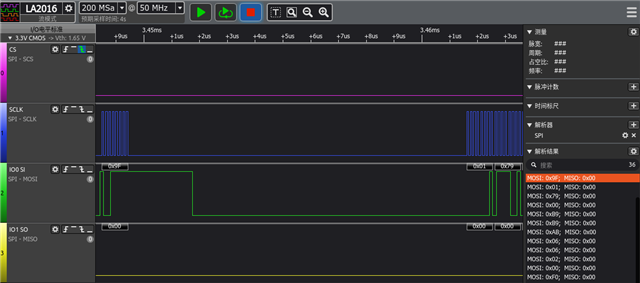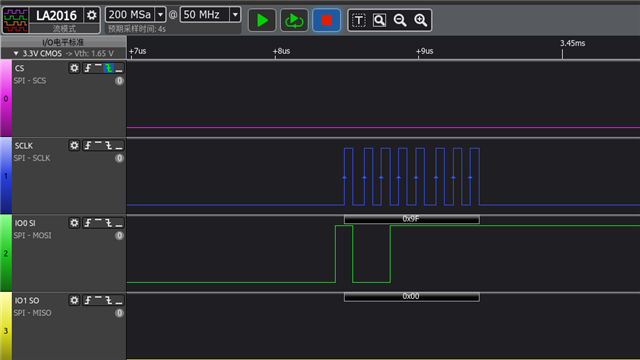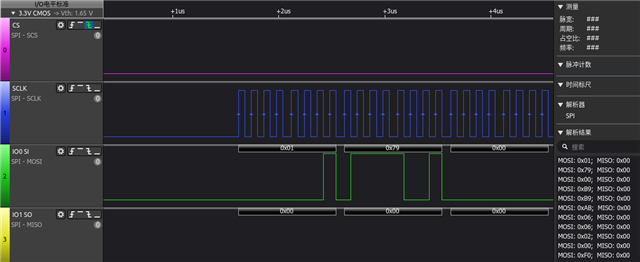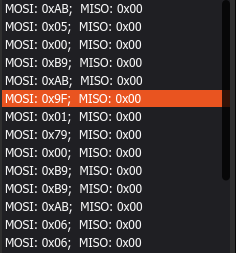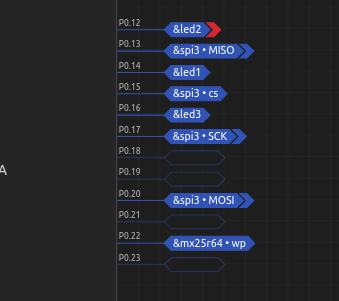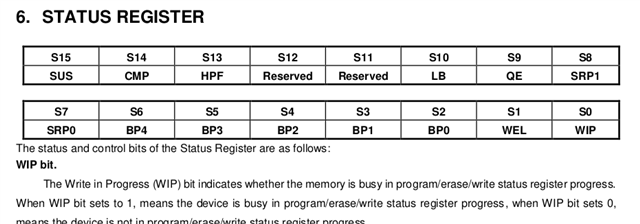Hi,
I make a customer board and used GD25Q80C as the external Flash IC (not MX25);
Read the sfdp bfp of Flash by jesd216 sample (zephyr \ samples \ drivers \ jesd216),But it failed and prompted "SFDP magic 000000 invalid";
However, when I replaced GD25Q80C with MX25R64, it was successful;
My configuration is as follows:
I basically haven't changed the configuration of samples, only the IO port has been modified;
Can you see what the problem is?
The specifications for this IC are as follows
&spi2 {
compatible = "nordic,nrf-spi";
status = "okay";
cs-gpios = <&gpio0 15 GPIO_ACTIVE_LOW>;
pinctrl-0 = <&spi2_default>;
pinctrl-1 = <&spi2_sleep>;
pinctrl-names = "default", "sleep";
mx25r64: mx25r6435f@0 {
compatible = "jedec,spi-nor";
reg = <0>;
spi-max-frequency = <8000000>;
jedec-id = [c8 40 14];
size = <8388608>;//67108864
wp-gpios = <&gpio0 22 GPIO_ACTIVE_LOW>;
hold-gpios = <&gpio0 24 GPIO_ACTIVE_LOW>;
};
};
spi2_default: spi2_default {
group1 {
psels = <NRF_PSEL(SPIM_SCK, 0, 17)>,//19
<NRF_PSEL(SPIM_MOSI, 0, 20)>,//20
<NRF_PSEL(SPIM_MISO, 0, 13)>;//21
};
};
spi2_sleep: spi2_sleep {
group1 {
psels = <NRF_PSEL(SPIM_SCK, 0, 17)>,//19
<NRF_PSEL(SPIM_MOSI, 0, 20)>,//20
<NRF_PSEL(SPIM_MISO, 0, 13)>;//21
low-power-enable;
};
};
/////prj
CONFIG_STDOUT_CONSOLE=y
CONFIG_FLASH=y
CONFIG_FLASH_JESD216_API=y
# Assume the standard SPI NOR flash driver. If the device uses
# another driver add an override configuration in boards/.
CONFIG_SPI=y
CONFIG_SPI_NOR=y
CONFIG_UART_CONSOLE=y
CONFIG_CLOCK_CONTROL_NRF_K32SRC_RC=y
CONFIG_SOC_ENABLE_LFXO=n



